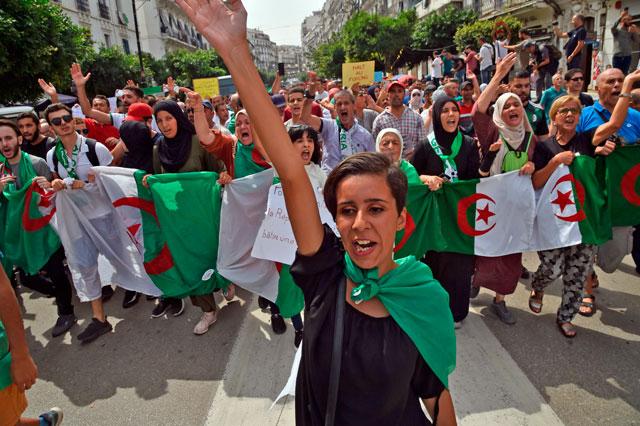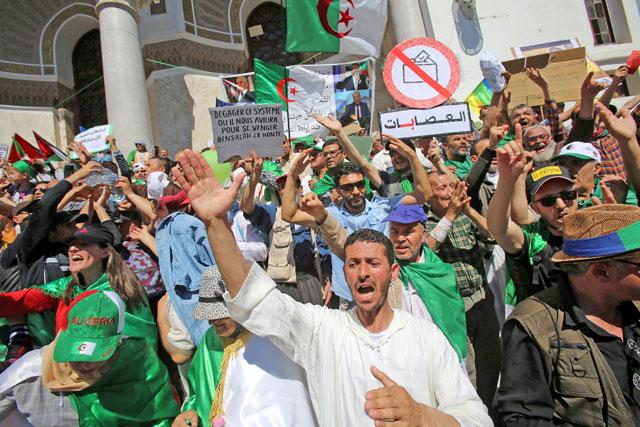You are here
Algeria: Seven months of anti-regime protests
By AFP - Sep 25,2019 - Last updated at Sep 25,2019
PARIS — Algeria has been in political turmoil for seven months, with major anti-regime protests continuing even after the resignation of long-time president Abdelaziz Bouteflika in April.
On Wednesday, Bouteflika’s brother, for years seen as the real power behind the presidency, was convicted of conspiring against the state and sentenced to 15 years in prison.
Here is a timeline: ‘No’ to Bouteflika
On February 22, 2019, thousands of people demonstrate in Algiers and other cities against Bouteflika’s candidacy in presidential elections set for April.
The ailing 82-year-old has already been in power for 20 years and rarely seen in public after a 2013 stroke.
Protesters chant: “No fifth mandate!”
Big rallies are held again on the next two Fridays.
After two weeks of medical treatment in Switzerland, Bouteflika returns to Algeria on March 10. The next day he postpones the April election.
Amid fears he will attempt to cling to power, there are massive protests again the following Friday, March 15.
Army chief Ahmed Gaid Salah — once considered loyal to Bouteflika — on March 26 demands the president step down or be declared medically unfit to rule.
On April 2, after the army chief calls for impeachment, Bouteflika hands in his resignation.
While crowds cheer his departure, they demand more changes.
Protesters again fill the streets on April 5, calling for other regime stalwarts to step down, including Upper House speaker Abdelkader Bensalah.
Bensalah is on April 9 named interim president. Opposition parties refuse to confirm his nomination.
Bensalah’s office calls presidential elections for July 4.
Another official targeted by protesters, constitutional council chief Tayeb Belaiz, quits on April 16.
July vote scrapped
In the following weeks, corruption investigations are launched against regime insiders.
Politicians and businessmen close to Bouteflika are arrested.
Army chief Salah, the key powerbroker since Bouteflika’s departure, calls for dialogue, insisting on May 22 he has no political ambitions himself.
The constitutional council on June 2 scraps the July presidential election for lack of acceptable candidates.
Call for dialogue
On July 3, the interim president proposes a national dialogue to prepare for elections, without the involvement of the state or the military.
His mandate expires on July 9 but he stays in office with the army’s backing.
On September 15, Bensalah sets the election for December 12.
Three days later, the military toughens its line against protests, ordering police to block demonstrators from outside the capital entering Algiers.
Bouteflika’s brother jailed
On September 25, a military court sentences Bouteflika’s brother, Said, and three co-defendants to 15 years in prison for “undermining the authority of the army” and “conspiring” against the state.
Said Bouteflika was widely seen as the real power behind the presidency after his brother’s stroke.
Their convictions are the most high-profile in a string of graft prosecutions undertaken since Bouteflika’s departure.
Related Articles
ALGIERS — Algeria's military has ordered police to block protesters from outside the capital entering Algiers, the army chief said on Wednes
ALGEIRS — Protesters thronged Algeria’s capital for the first Friday mass rally of Ramadan, pressing their demands for reforms and the
ALGIERS — Protesters massed in the Algerian capital on Tuesday to demand the cancellation of a controversial presidential election plan













